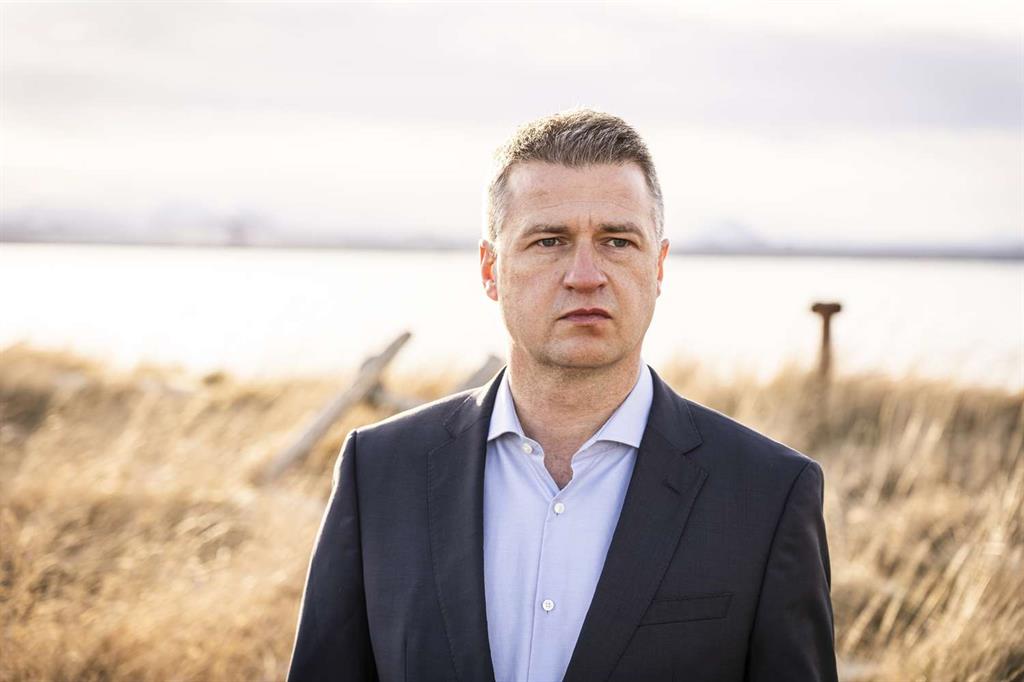Fishrot whistleblower rubbishes Samherji's loss-making claims
OGONE TLHAGE
WINDHOEK
Whistleblower Johannes Stefansson, who formerly headed Icelandic seafood giant Samherji’s Namibian business interests, has cast doubt on claims by his former employer that its Namibian fishing operations, now at the centre of the Fishrot bribery saga, had made losses over the years.
Samherji recently released a statement saying that it had not been able to turn a profit while it operated in Namibia.
According to Samherji, the company made a loss of 950 000 000 Icelandic krone (N$123 million) in Namibia.
“The net loss for the period, adding depreciation, finance costs, income tax etc. amounted to 950 million Icelandic krone. Samherji believes that this shows that one of the most serious allegations made against the company, about exploitation in Namibia, is not rooted in facts,” Samherji said.
Creative accounting
Stefansson disputed this, saying that Samherji was concealing information related to its financial statements.
“When other fishing companies in Namibia in the horse mackerel industry made big profits from 2012 to 2018, Samherji made a loss according to themselves,” Stefansson said.
“They say they made loss in the operation in Namibia from 2012 to 2018 of N$121 million, they are basically proving the point as all the profits were shifted out illegally and Samherji made huge profits from the Namibian operation outside of Namibia from its subsidiaries in Poland, the United Kingdom, Cyprus and Mauritius. This they did to avoid taxes in Namibia as we have said and is money laundering, tax evasion and fraud,” Stefansson said.
“They give misleading information by taking different cost items and making them as one ... which makes no sense and they don’t show any documents, just throw some numbers out and some media,” he said.
“For sure there are big numbers missing in their turnover from 2012 to 2018,” he added.
Misinformation
Samherji’s CEO, Björgólfur Jóhannsson, said claims that the company’s operations in Namibia were profitable were misleading.
“The results show that the allegations that Samherji walked away from Namibia with large profits are grossly misleading. Serious accusations about exploitation in Namibia deeply affected our management,” he said.
According to Johannsson, the most significant part of operating expenses during the period were salaries, payments to Namibian partners and quota fees to the Namibian government.
Payments to joint ventures owned by Namibians, the Namibian government and other quota holders were 29.3% of total revenues, and these payments amounted to a total of 12 billion Icelandic krone, he said.
According to him, quota fees and salaries during the period were 51% of the company’s domestic operating expenses. The most substantial part of operating costs outside Namibia was salaries paid to crew members, fuel, and charter and maintenance fees for vessels.
WINDHOEK
Whistleblower Johannes Stefansson, who formerly headed Icelandic seafood giant Samherji’s Namibian business interests, has cast doubt on claims by his former employer that its Namibian fishing operations, now at the centre of the Fishrot bribery saga, had made losses over the years.
Samherji recently released a statement saying that it had not been able to turn a profit while it operated in Namibia.
According to Samherji, the company made a loss of 950 000 000 Icelandic krone (N$123 million) in Namibia.
“The net loss for the period, adding depreciation, finance costs, income tax etc. amounted to 950 million Icelandic krone. Samherji believes that this shows that one of the most serious allegations made against the company, about exploitation in Namibia, is not rooted in facts,” Samherji said.
Creative accounting
Stefansson disputed this, saying that Samherji was concealing information related to its financial statements.
“When other fishing companies in Namibia in the horse mackerel industry made big profits from 2012 to 2018, Samherji made a loss according to themselves,” Stefansson said.
“They say they made loss in the operation in Namibia from 2012 to 2018 of N$121 million, they are basically proving the point as all the profits were shifted out illegally and Samherji made huge profits from the Namibian operation outside of Namibia from its subsidiaries in Poland, the United Kingdom, Cyprus and Mauritius. This they did to avoid taxes in Namibia as we have said and is money laundering, tax evasion and fraud,” Stefansson said.
“They give misleading information by taking different cost items and making them as one ... which makes no sense and they don’t show any documents, just throw some numbers out and some media,” he said.
“For sure there are big numbers missing in their turnover from 2012 to 2018,” he added.
Misinformation
Samherji’s CEO, Björgólfur Jóhannsson, said claims that the company’s operations in Namibia were profitable were misleading.
“The results show that the allegations that Samherji walked away from Namibia with large profits are grossly misleading. Serious accusations about exploitation in Namibia deeply affected our management,” he said.
According to Johannsson, the most significant part of operating expenses during the period were salaries, payments to Namibian partners and quota fees to the Namibian government.
Payments to joint ventures owned by Namibians, the Namibian government and other quota holders were 29.3% of total revenues, and these payments amounted to a total of 12 billion Icelandic krone, he said.
According to him, quota fees and salaries during the period were 51% of the company’s domestic operating expenses. The most substantial part of operating costs outside Namibia was salaries paid to crew members, fuel, and charter and maintenance fees for vessels.





Comments
Namibian Sun
No comments have been left on this article